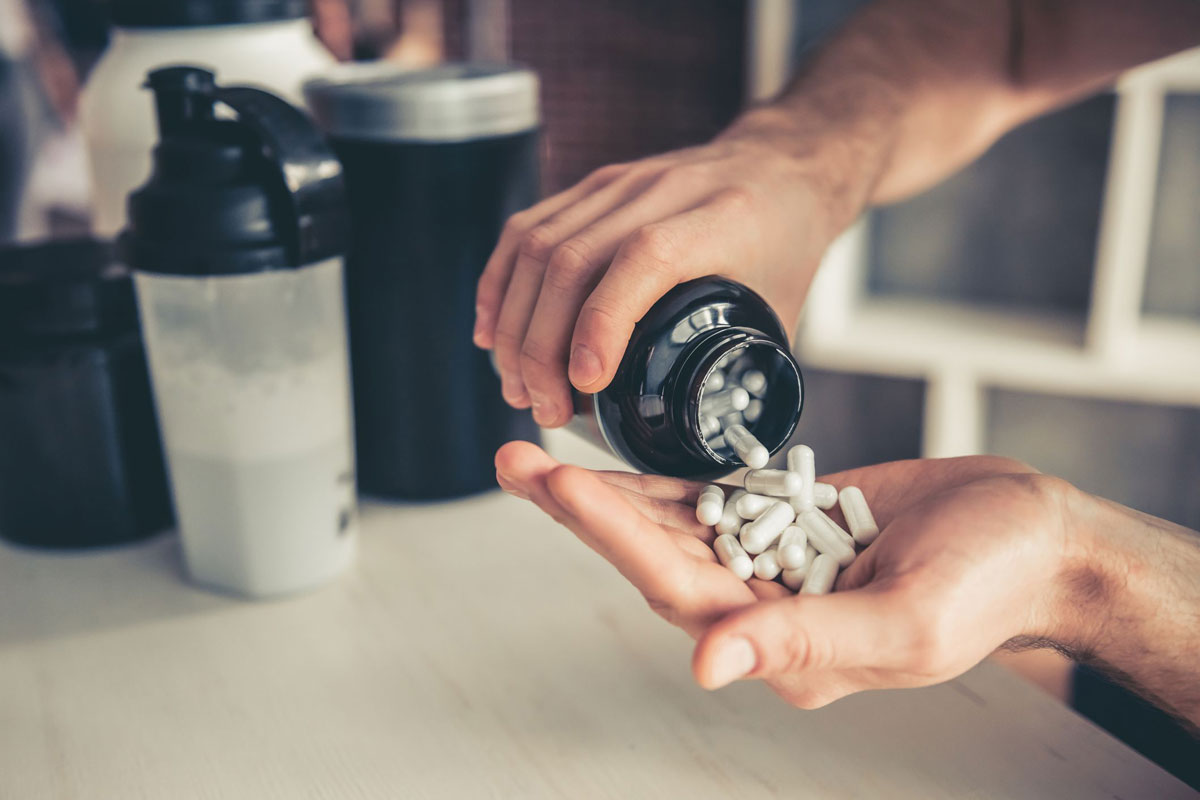Pre-workout might be something you’ve either heard about or even spent some time looking at, regardless of if you’re a full-blown gym junkie or a complete newbie. Put simply, pre-workout is a supplement you take before you go to the gym, as it is designed to give you an extra boost in energy to help you complete your workout.
If you’re someone who regularly lacks the motivation to hit the gym, or you do go, but you feel too tired to push to your full potential, pre-workout could be for you. But, as with virtually any supplement, there are some things to be aware of with regard to taking pre-workout, because there can be some potential risks and side-effects if you don’t use it properly.
So, what exactly is pre-workout and is it completely necessary?
Read on to find out what pre-workout is, what pre-workout can do and what ingredients you can expect to find in pre-workout, along with some potential risks and benefits to help you decide if it’s a supplement for you.
In this pre-workout story…
What Is Pre-Workout?
Simply put, pre-workout is a supplement you take before your workout – usually around 20-minutes to an hour – that is designed to give you more energy and focus, to help you complete your workout. Pre-workout can come in a variety of forms, including meals, shakes and pills, but it is most commonly taken in powder form and mixed with water.
What Does Pre-Workout Do?
Pre-workout is basically designed to make you work harder for longer, giving you extra energy and better focus during exercise which can improve your overall performance. It does this by increasing the supply of carbohydrates to your body by way of glucose. It’s this increase in glucose consumption that helps to raise your body’s blood sugar level, thus giving you a greater amount of energy.
What’s In Pre-Workout?

Pre-workout usually contain a range of different ingredients, making them a simple alternative to taking multiple supplements before heading to the gym. The main basis of pre-workout is a combination of sugar, caffeine and various other stimulants, designed to increase your energy levels. But, for a more in-depth breakdown as to what you can you expect to find in your pre-workout, check out the list below.
BCAAs
Branch chain amino acids are another type of amino acid that can improve your endurance during your workout and increase strength while also reducing fatigue and muscle soreness.
Beta-Alanine
Beta-Alanine is an amino acid that can help reduce muscle fatigue by combating acid which builds up in your body during intense exercise. Beta-Alanine is most effective for improving performance during short bursts of intense exercise lasting between one and four minutes.
B-vitamins
B Vitamins such as B1, B2, B5, and B6 all help with energy production and efficiency. B12 supports blood production, and B3 can boost DNA repair and promote healthier skin.
Caffeine
Caffeine is a common ingredient in pre-workout as it helps energise you, improve your power output, and helps you maintain your endurance. Pre-workout usually has anywhere from 150 mg to 300 mg of caffeine per serving, which equals about three to eight cups of coffee.
Caffeine is one of the main ingredients you need to be looking out for when you’re comparing pre-workout, as consuming too much can lead to potential health problems. For the most part, however, the pre-workout you choose will be safe.
Carbohydrates
Some brands of pre-workout contain will carbs (sugar) which help top up your available energy stores and keep you working out longer with less fatigue. Depending on how you structure your diet, it may be advisable to look for sugar and calorie-free pre-workouts.
Creatine Monohydrate
Creatine is a very popular supplement and is included in many pre-workouts due to its ability to increase muscle power and performance in bursts during short, high-intensity workouts.
NO2-boosters
NO2 boosters, such as L-arginine and L-citrulline, help your blood flow around your body easier by expanding your veins and arteries, helping deliver nutrients quicker and more efficiently.
Sodium bicarbonate
More commonly known as baking soda, sodium bicarbonate can act as a buffer to fight lactic acid build-up during exercise. However, it might be something to try to avoid for those who are limiting their salt intake or are salt-sensitive.
Pre-Workout Benefits & Risks
Pre-workout has the obvious benefit of being able to increase your energy, thereby improving your performance level during your workout. Other benefits of pre-workout can include: improved muscle strength, cognition, lean gains, lower body strength, increased focus and endurance and enhanced physical performance when taken consistently.
In fact, a study published in the Journal of the International Society of Sports Nutrition found an increase in VO2 max, training volume and lean muscle mass in participants who used pre-workout before completing HIIT workouts.
However, if pre-workout is taken incorrectly, it can cause problems.
Caffeine is a key ingredient in many pre-workouts and is worth looking out for, especially if you’re sensitive to caffeine, as it can vary from mild to excessive amounts. In some cases, high doses of caffeine can cause issues like anxiety, insomnia, and high blood pressure.
One 29-year-old personal trainer even died from caffeine toxicity after miscalculating his dosage and drinking up to 5 times the potentially fatal level of caffeine in one go.
Some other side effects of pre-workout can include:
- Digestive symptoms
- Irregular heartbeat
- Changes in blood sugar
When To Take Pre-Workout
Pre-workout is most effective when taken consistently rather than sporadically. Consistent use helps the main ingredients build up their reserves in your body. After constant use for a few weeks, you may notice you feel less tired during and after your workouts and that they last longer.
In terms of when to take pre-workout before your gym session, it’s best to follow the instructions on the label of your pre-workout, as it can vary between brands. Still, it’s usually advised to take pre-workout around 20 minutes to an hour before you begin working out. Depending on the product, the pre-workout can last anywhere from three to six hours— more than long enough to get you through a serious workout.
Read Next
